Blog
Rosacea Sufferers Can Help Combat Antibiotic Resistance
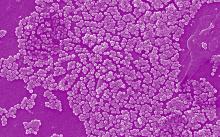
Antibiotic resistance continues to be a growing concern, and individuals with rosacea can do their part to protect this important class of disease-fighting drugs.
Read More
Rosacea Awareness Month: Partner with Your Physician for Clear Skin
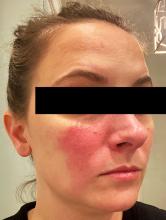
Thanks to the growing number of sophisticated rosacea therapies, the 16 million Americans with this potentially serious facial disorder who commit to partnering with their physicians can now expect to enjoy a clear complexion without the psychological and emotional burden of its unpredictable and embarrassing effects
Read More
Q&A: How are Acne and the Papules and Pustules of Rosacea Different?
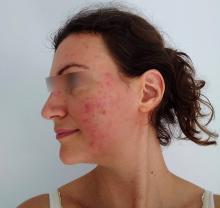
Although it is now known that there is no connection between acne and rosacea, the term “acne rosacea” was once frequently used to describe the bumps (papules) and pimples (pustules) of papulopustular rosacea, and the misleading term is still sometimes used today.
Read More
Tips for Taking Action During Rosacea Awareness Month

Each year, the National Rosacea Society (NRS) designates April as Rosacea Awareness Month to educate the public on the impact of this chronic and widespread facial disorder that is estimated to affect more than 16 million Americans.
Read More
Rosacea Awareness Month to Highlight the Importance of Adherence to Therapy
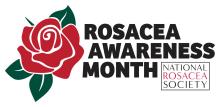
Sophisticated new therapies designed to target rosacea's disease processes combined with treatment plans tailored to patients’ specific cases have made it easier than ever for sufferers to achieve clear skin.
Read More
Researchers Define Keys to Recognizing Ocular Rosacea
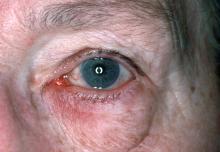
A pair of new studies help establish the relative prevalence of signs and symptoms of the eyes in rosacea patients (ocular rosacea), as well as the importance of medical therapy.
Read More
Study: Burning and Stinging Are Neglected but Important Symptoms in Managing Rosacea
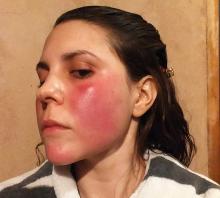
Most clinical practice guidelines for rosacea identify the primary objective as clearing the visible signs of rosacea, and unseen symptoms such as burning and stinging are not always addressed, although they continue to add to patients’ burden of disease and lower quality of life, according to a review o
Read More
Demodex Species May Affect Rosacea Inflammation, But Not Ocular
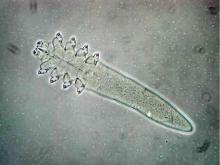
A small study in Russia recently examined the effects of different species of Demodex mites in rosacea.1 Researchers examined 212 patients in three groups: healthy controls, rosacea patients low levels of mites, and rosacea patients with high levels of mites.
Read More
Join LEO Pharma Inc. in recognizing National Healthy Skin Month!
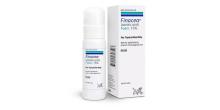
Sponsored post The following announcement was issued by LEO Pharma Inc. November marks National Healthy Skin Month, and we at LEO Pharma recognize the importance of skin health.
Read More
National Rosacea Society Awards 2021 Research Grants
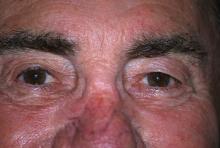
The National Rosacea Society (NRS) has awarded funding for two new studies in addition to continuing support for two ongoing studies as part of its research grants program to increase knowledge and understanding of the potential causes and other key aspects of rosacea that may lead to improvements in i
Read More
We’re Looking for Your Rosacea Photos and Stories
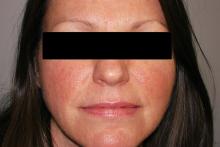
UPDATE: Although this campaign has ended, we are always interested in more photos of real-life patients to help us diversify the depictions of rosacea in the media and on our own website. If you are interested in helping, please email photos to us at info@rosacea.org. Photos should be high-resolution, preferably on a white or uncluttered background. Full face images are best; we will cover eyes or other features on our end.
Read More
Targeting Redness May Change the Course of Disease in Rosacea

Research and clinical experience show that targeting the persistent redness (erythema) of rosacea, in combination with treating all signs and symptoms individually, may not only clear its appearance but also lessen the severity of the disease itself, according to Dr.
Read More
New Research Links Rosacea and Ulcerative Colitis

In a new NRS grant-funded study, researchers have found that ulcerative colitis, a type of digestive disorder, is two times more likely to be present in individuals with rosacea compared to those without rosacea.
Read More
New Publication Updates Physicians on Facial Redness in Rosacea
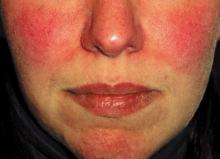
New recommendations urging dermatologists and other health professionals to place greater emphasis on persistent facial redness (erythema) in rosacea were recently published in the Journal of Drugs in
Read More
Rosacea May Be Associated with Gout, Kidney Stones
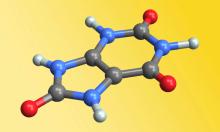
Editor’s note: It’s important to note that these findings only suggest a potential association. To determine any cause and effect relationship, further study is required.
Read More
Study Investigates How Rosacea Affects Sleep

When your rosacea is flaring up, have you ever noticed that you have trouble sleeping? The first study to investigate the relationship between rosacea and sleep found evidence that the chronic skin disorder and poor sleep quality may be associated with each other.
Read More
Studies Find Associations Between Rosacea And Psychiatric Disorders

Editor’s note: Rosacea is a highly visible condition associated with social stigma due to a lack of public awareness and misinformation surrounding its cause. Over the past few years, multiple studies have suggested a connection between rosacea and psychiatric disorders. Additionally, many researchers have noted that rosacea negatively impacts patients’ quality of life.
Read More
Different Foods Trigger Rosacea Flare-ups in Different Ways

The fact that certain foods can trigger a flare-up in some rosacea patients is well known.
Read More
10 Secrets Only People with Rosacea Know

The National Rosacea Society recently conducted a survey focused on how rosacea impacts the social lives of patients. More than 575 people with rosacea took part in the survey, and 85% of the respondents said a flare-up of rosacea frequently or occasionally brings them unwanted attention.
Read More
When You Look in the Mirror, Do You See Red Skin Spots and Raised Bumps on Your Face?
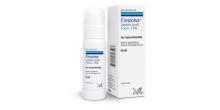
Sponsored post The following announcement was issued by LEO Pharma Inc. If you do, it’s possible that your healthcare professional may diagnose you with having mild to moderate rosacea.
Read More
Why is Perioral Dermatitis Often Mistaken for Rosacea?

The symptoms of perioral dermatitis, also known as periorificial dermatitis, may seem a lot like rosacea: red bumps, pimples and scaling and peeling around the mouth, nose and central part of the face, sometimes coupled with a burning or stinging sensation.
Read More
National Rosacea Society Offers Updated ‘Understanding Rosacea’ Booklet
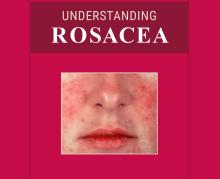
The National Rosacea Society today announced it has introduced an updated version of “Understanding Rosacea,” its most popular educational booklet that provides an introduction to this chronic facial skin disorder estimated to affect more than 16 million Americans. The new edition incorporates the updated standard classification and pathophysiology of rosacea, developed by a consensus committee and review panel of 28 rosacea experts worldwide and published in the Journal of the American Academy of Dermatology.
Read More
Masks Make Matters Worse for Rosacea Patients, Study Finds

Almost from the start of the COVID-19 pandemic, people with acne and rosacea have reported new or worsening symptoms due to long hours wearing protective face masks.
Read More

